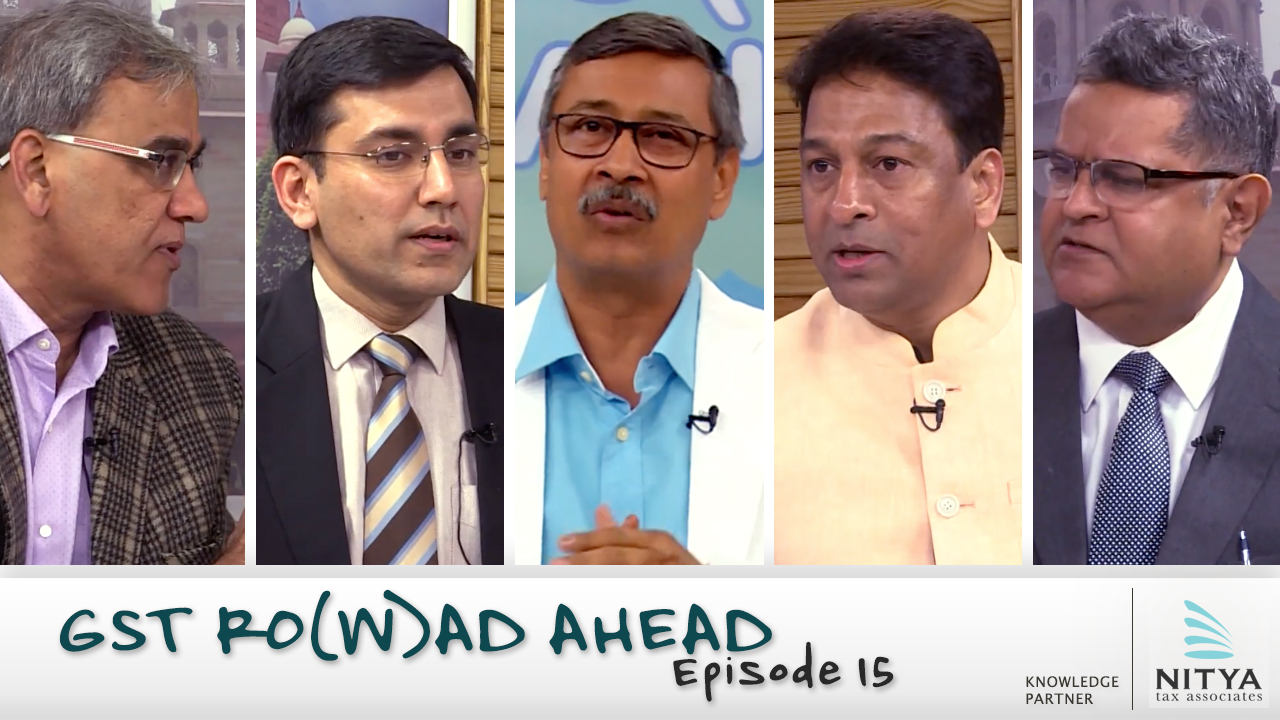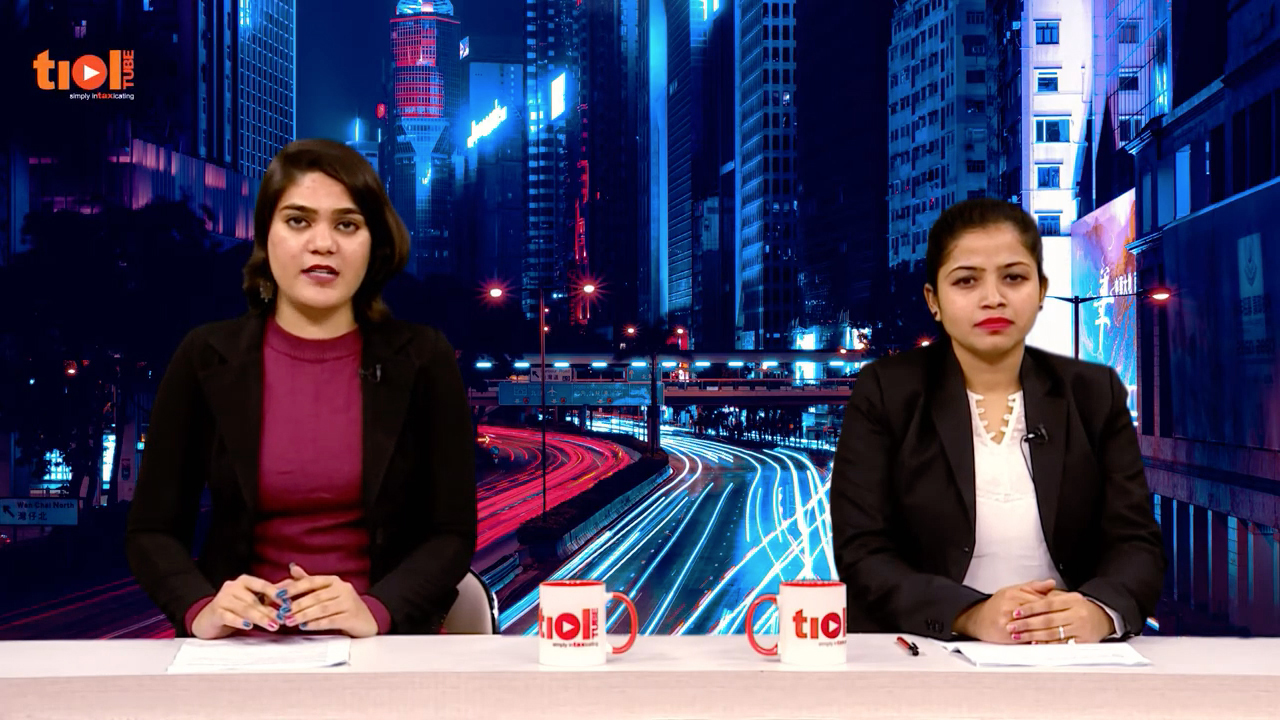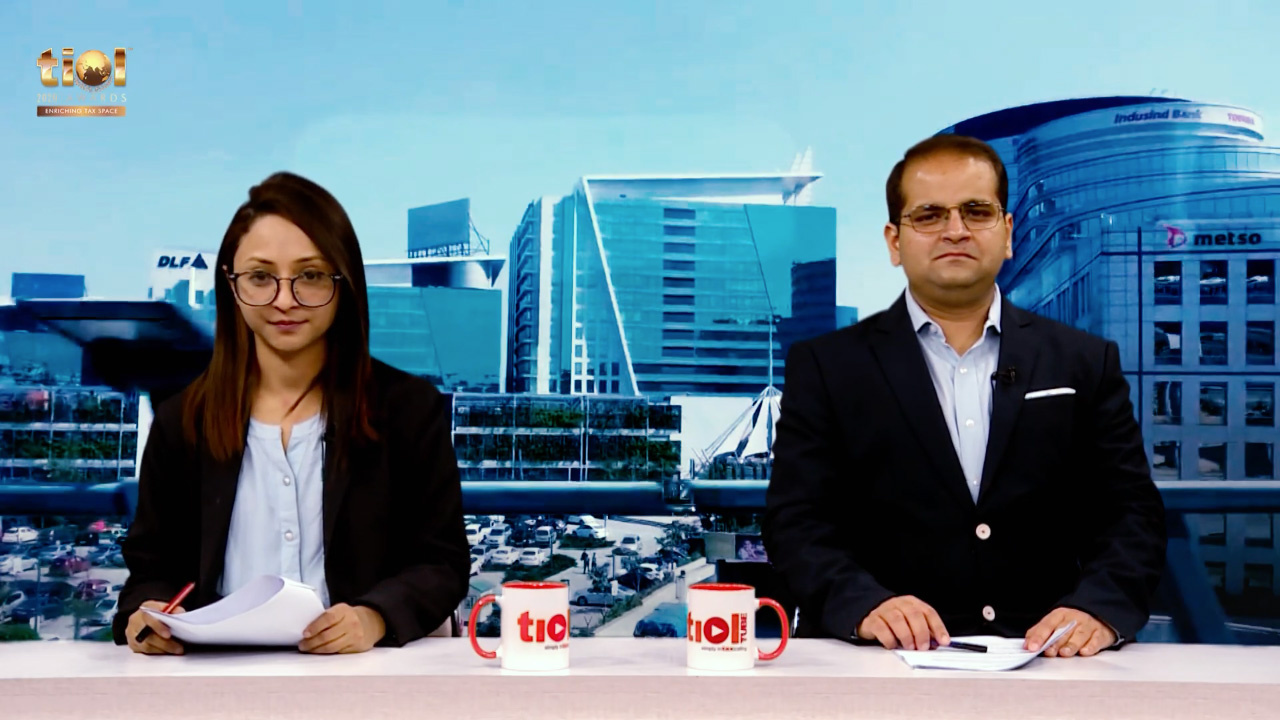|
SERVICE TAX
2020-TIOL-890-CESTAT-ALL
Go Bindas Entertainment Pvt Ltd Vs CST
ST - It is well settled law that no demand can be confirmed by comparing the ST-3 return figures with balance sheet figures, in the absence of any evidence to the contrary that income in the balance sheet, if excess, reflects the provision of taxable services - It is the revenue who is making the allegations and, as such, the onus to prove said allegation lies very heavily upon the revenue - Inasmuch as, the same has not been done, the impugned order is set aside and appeal is allowed with consequential relief: CESTAT [para 4, 5]
- Appeal allowed: ALLAHABAD CESTAT
2020-TIOL-889-CESTAT-MAD
Padma Engineering Works Vs Commissioner Of GST & CE
ST - Composite contracts for fabrication and erection of sliding gates, rolling shutters, etc., on Works Contract basis have been undertaken by the appellant - Show Cause Notice issued demanding tax liability under Commercial or Industrial Construction Service (CICS) (finishing services) – appeal to CESTAT against impugned order passed by Commissioner(A) upholding the tax demand.
Held: All throughout, right from the reply to the Show Cause Notice, appellant has been maintaining that the activity done would fall under Works Contract Service – Bench notes that in paragraph 1 of the Show Cause Notice dated 06.01.2009, the same also acknowledges that the appellant "had undertaken composite contracts of supply/erection of the said items.." - This being so, Bench finds that the ratio laid down by the Hon'ble Apex Court in the case of M/s. Larsen & Toubro Ltd. - 2015-TIOL-187-SC-ST will apply on all fours to the case on hand - The impugned Order cannot then be sustained and is therefore, set aside – Appeal allowed with consequential reliefs: CESTAT [para 5, 6]
- Appeal allowed: CHENNAI CESTAT
CENTRAL EXCISE
2020-TIOL-892-CESTAT-DEL
Dharampal Satyapal Ltd Vs CCT
CX - The assessee is engaged in manufacture of perfumery compounds, pan masala, mouth freshener and milk products having their manufacturing units at Delhi and Noida - To manufacture the dutiable finished products, assessee receives several inputs and avails cenvat credit on the eligible inputs received along with the duty paying documents - They maintains proper records of transactions including availing of cenvat credit and its usage, as required under the provisions of law - DGCEI alleged that the assessee is claiming inadmissible cenvat credit on inputs received by it because of irregularities committed by its suppliers and discrepancies found at the supplier end - The main allegation of DGCEI against the assessee is that they have done only paper transactions for some inputs and they have actually not received the said inputs from the 13 specified parties, whereas the contention of assessee has been that they have received the inputs and as they have been made to understand that there is some discrepancy in the documents accompanying the inputs - The assessee in their offer letter dated 23.05.2016 followed by 22.6.2016 and 20.07.2016, have all throughout stood by their stand that they have received the inputs and only the cenvat credit is disputed due to some technical defects in the documents, whereas the DGCEI in the purported closure letter dated 29.7.2016 has categorically stated that the assessee has not received the inputs with respect to invoices of 13 suppliers/manufacturers during the period May, 2012 to October, 2015 - In view of the non acceptance of allegation of DGCEI by the assessee, as to non receipt of inputs in question, the purported waiver vide communication dated 20.07.2016 is bad and illegal and is not enforceable against the assessee - Due to non agreement with the allegation of DGCEI by assessee, the DGCEI was bound to issue SCN and thereafter proceed in accordance with law - It has been provided in CBEC circular /clarification dated 18.08.2015 that the letter of closure should be issued by an officer equivalent to the adjudicating authority - Further, quantification of the demand can only be communicated to an assessee once an investigation gets completed - Further, as per CBEC clarifications, a letter of closure is required to be issued without a separate adjudication order - Thus, the said closure dated 29.07.2016 is equivalent to an adjudication order, for all practical purposes - Thus, even instructions dated 18.08.2015 of CBEC have also been circumvented by ADG, DGCEI by issuing the closure letter, instead of a SCN, there being non acceptance of allegation of Revenue by the assessee - It is also found from the documents on record that in the course of investigation, DGCEI found some of the disputed inputs physically present in the factory premises and records of the consumption of such inputs in the production of dutiable products, have not been disputed - Further, assessee in their letter dated 22.06.2016 and 22.07.2016 has categorically mentioned such facts, as regards one of their supplier – Kanpur Perfumary Private Limited - Tribunal found in their offer letter for settlement that the settlement should be affected not only against the company but also for Vice Chairman, Directors, Suppliers and other co-noticees, and refers to some assurances given to them to withdraw such type of all cases and complaints filed by the department - There is no denying that high stakes were involved and there also question arises as to the duty paid by the suppliers or assessee is un-authorised, and who is actually required to pay duty and who is entitled to refund - Accordingly, the impugned letter of closure dated 29.07.2016 is bad and illegal and the same is accordingly set aside - The said closure letter is neither in the spirit of CBEC's circular/clarification dated 18.08.2015 and is evidently in violation of provisions of Section 11 A(4) read with Section 11 AC (1)(d) - Revenue has completed its investigation and has already quantified the demands - Accordingly, liberty is granted to the Revenue, that by following the statutory process and natural justice to issue a SCN to the assessee, if they so desire - For the purpose of limitation, the period from 29.07.2016 to till date of issue of this order shall stand excluded for the purpose of calculation of limitation - Such SCN should be issued within 3 months from the date of issue of this order - Pursuant to issuance of SCN, assessee shall be at liberty to either contest or settle in accordance with law: CESTAT
- Appeal allowed: DELHI CESTAT
2020-TIOL-891-CESTAT-AHM
Mafatlal Industries Ltd Vs CCE & ST
CX - This appeal is directed against impugned order whereby demand of Cenvat Credit was confirmed and equivalent amount of penalties was imposed under Rule 15 of Cenvat Credit Rules read with section 11AC of CEA, 1944 - It also confirmed recovery of interest under section 11AB/AA of Central Excise Act - Assessee is manufacturer of Cotton Yarn and Fabrics and availed exemption Notfn 29/04- CE and 30/04-CE - The accounts of assessee for the period April, 2005 to March, 2011 were audited and various objections were raised by the audit party - One of the objections raised is that the assessee had not maintained separate accounts as per Rule 6 of Cenvat Credit Rules and despite the said fact, they had availed Cenvat credit of Input service used for both exempted and dutiable clearances - Major demand of Rs. 14,16,83,202/- was confirmed invoking Rule 6, for the period August 2007 to September 2011 - This demand consist amount equal to proportionate credit for the period August 2007 to March 2008 and 10%/5% of the value of clearance of the exempted goods for the period April 2008 to September 2011 - There is no dispute that the assessee have reversed Cenvat credit much more than the Cenvat credit attributed to common input service used in the manufacture of exempted goods - The assessee have also paid interest on such reversal - The entire demand raised under Rule 6 will not sustain - As regards the demand of Rs. 3,31,189/-, Cenvat credit was denied only on the ground that in the invoices, certain services did not carry either Serial Number or Service Tax Registration - This is a technical infraction and moreover this error is not on the part of assessee but on the part of the service provider who issued the invoices - It is not a case of department that in said invoices, no service tax was paid and there is no dispute about receipt and use of the services, which are the main criteria for allowing Cenvat credit on input service - Therefore, credit, only on the technical infraction should not be denied - Demand of Rs. 39,60,634/- was confirmed on the ground that same was wrongly availed on ISD invoices issued by assessee's Ahmedabad and Mumbai branch for services availed prior to the date of ISD registration was granted for the said unit - High Court of Karnataka in the case of mPortal (I) Wireless Solutions (P) Limited 2011-TIOL-928-HC-KAR-ST has considered the issue of ISD invoices issued prior to registration and held that for this reason Cenvat credit cannot be denied - It has been settled that even for ISD invoices issued for the distribution of input service credit prior to the registration, the same cannot be denied - Accordingly, demand of Rs. 39,60,634/- is set-aside - Since the entire demand has been set-aside, consequently penalties and demand of interest are also set-aside: CESTAT
- Appeal allowed: AHMEDABAD CESTAT
CUSTOMS
2020-TIOL-888-CESTAT-MAD
Rehoboth Exports And Imports Vs CC
Cus - Appellants imported cement from Pakistan through Tuticorin Port and availed concessional rate of countervailing duty (CVD) claiming exemption under Notification No.4/2006-CE dt.1.3.2006 as amended - Pursuant to investigations, it appeared to the department that cement imported in 50 kgs. pack were capable of being sold in retail market to ultimate consumers and hence the importer could not have claimed benefits under different clauses of the notification - SCNs were issued proposing to deny benefit of the notification and also for demanding the enhanced duty along with interest and for imposing fine and penalties - original authority confirmed the demand and imposed penalties and interest, which order was upheld by Commissioner(A), hence the appeal before CESTAT.
Held: On the very same facts and issues Tribunal vide Final Order No.40271-40292/2018 dt. 31.01.2018 and also Final Order No.40323-40332/2019 dt. 19.02.2019 held that the department has not been able to establish by any evidence that the imported cement were sold to any retail consumers at a higher price; that apart from the allegations and also the statements, there is no iota of evidence to show that the goods have been sold by the appellants to ultimate consumers at a price higher than that declared during the time of import - decisions in the said Final orders would squarely apply to these appeals as facts and issues are same – therefore, the demand, interest and the penalty cannot survive, both on merits as well as on limitation – orders set aside and appeals allowed with consequential relief: CESTAT [para 5, 6]
- Appeals allowed: CHENNAI CESTAT |
|










